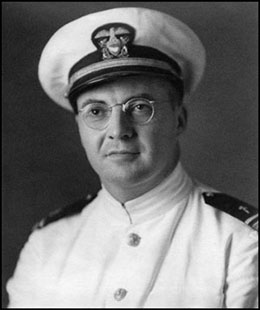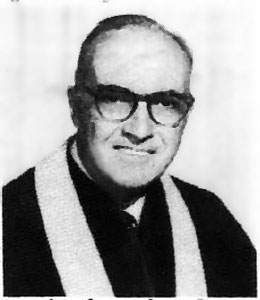
Established April 14, 1942
 |
American Ex-Prisoners of War
A not-for-profit, Congressionally-chartered veterans’ service organization advocating for former prisoners of war and their families.
Established April 14, 1942 |


Naval Chaplain Lt. Earl Ray Brewster
|

Earl Ray Brewster, Methodist Minister
|
|
| Last Name | First Name, Middle Init. | Nickname |
| Street Add. | City | State |
| Zip | Spouse | |
| Conflict | Branch of Service | Unit: |
| Theatre of Operation | Military Job | Where Captured |
| Date Captured | Time Interned | Camps |
| Date Liberated | Medals Received | Age at Capture |
| After the War ... | ||
He later attended Junior College in Oregon and then Southern Methodist in Texas. Upon the death of his father he returned to Long Beach. He was employed by the YMCA, where he met Rosella Mae Traver who became his wife in 1926. By 1929 their first son, Leland, was born and Earl began to feel an irresistible call to the ministry. His first church in Northern California led to an assignment as pastor to students at the University of California, Berkeley. Other pastorates followed, along with another son, Leonard.
While serving as pastor of the Methodist Church in Santa Paula, California, Earl determined his ministry lay in the Naval Chaplaincy. His military career began in 1941 as Lieutenant, (JG) in the Naval Chaplains' Corps. He was assigned to the Submarine tender USS Holland. During the attack on Pearl Harbor Earl was ashore in a naval hospital and his ship left Manila Harbor to avoid destruction.
Along with others Earl was captured at the hospital and interned by the Japanese in the course of their five-month campaign to conquer the Philippine Islands. He was first sent to Cabanatuan, then shipped to Mindanao and eventually back to Cabanatuan, to Fort Mckinley and finally to Bilibid, from which he was liberated. The transfer to Fort McKinley may have saved his life. He'd been scheduled to be shipped to Japan, but the Japanese decided instead to send him to the fort as a staff officer. The ship on which he'd been scheduled to sail was not marked as a prison vessel and was sunk.
Earl spent three years serving as chaplain to his fellow prisoners. One of them said of him, "I met Chaplain Brewster and was immediately struck by his splendid example of courage and fortitude under the stress of the terrible circumstances in which we found ourselves. It was difficult to maintain faith and hope in these horrible circumstances, but it was made easier for all of us by the moral and spiritual leadership of Chaplain Brewster. He was our friend and counselor and a constant source of good cheer and hope. He ministered to the sick, organized a daily Bible Class for us, which benefited all of us greatly, and every Sunday he delivered a sermon which was absolutely inspiring. His efforts were endless even though his physical strength ebbed constantly as a result of the starvation we were enduring."
One of his hardest assignements was conducting burial services for 40 men who had died in one day at Cabanatuan. "They were placed in a common grave," he recalled. "All of them were as thin as skeletons, and most of them were naked because their clothes were needed by the living."
In Earl's privately circulated book about his prison camp experience,(Barbed Wire Chaplain (Round Trip to Hell,) he says "If I, by the Grace of God, was able to bring a message of hope and assurance of God's love, which made the way brighter, then I felt repaid for the privilege of serving in this part of the Lord's Vineyard."
After his release from prison camp in 1945 and after being reuniting with his family, Earl was accepted in the Regular Navy. His next duty stations took him from coast to coast. He was forced to retire from the Navy Chaplaincy in 1959 due to a heart condition, and he and Rosella returned to California where he served as supply pastor and visitation minister and remained active in civic affairs.
Earl's lifetime ministry, wherever it was, was grounded in concern for people and helping them know the love of God, the Saving Grace of Jesus Christ and the practical application of these Divine Truths to their lives. His life demonstrated to those he encountered, whether in prison camp or everyday life, that "there is a Friend that sticketh closer than a brother."
Written by Leland Brewster (son).
Ed. note: The full text of Earl Brewster's book, Barbed Wire Chaplain (Round Trip to Hell), can be found on the website https://barbedwirechaplain.org. In addition to that text and sketches by Rosella Brewster, the site features personal journals kept while a POW, photographs, and reproductions of personal notes and documents.